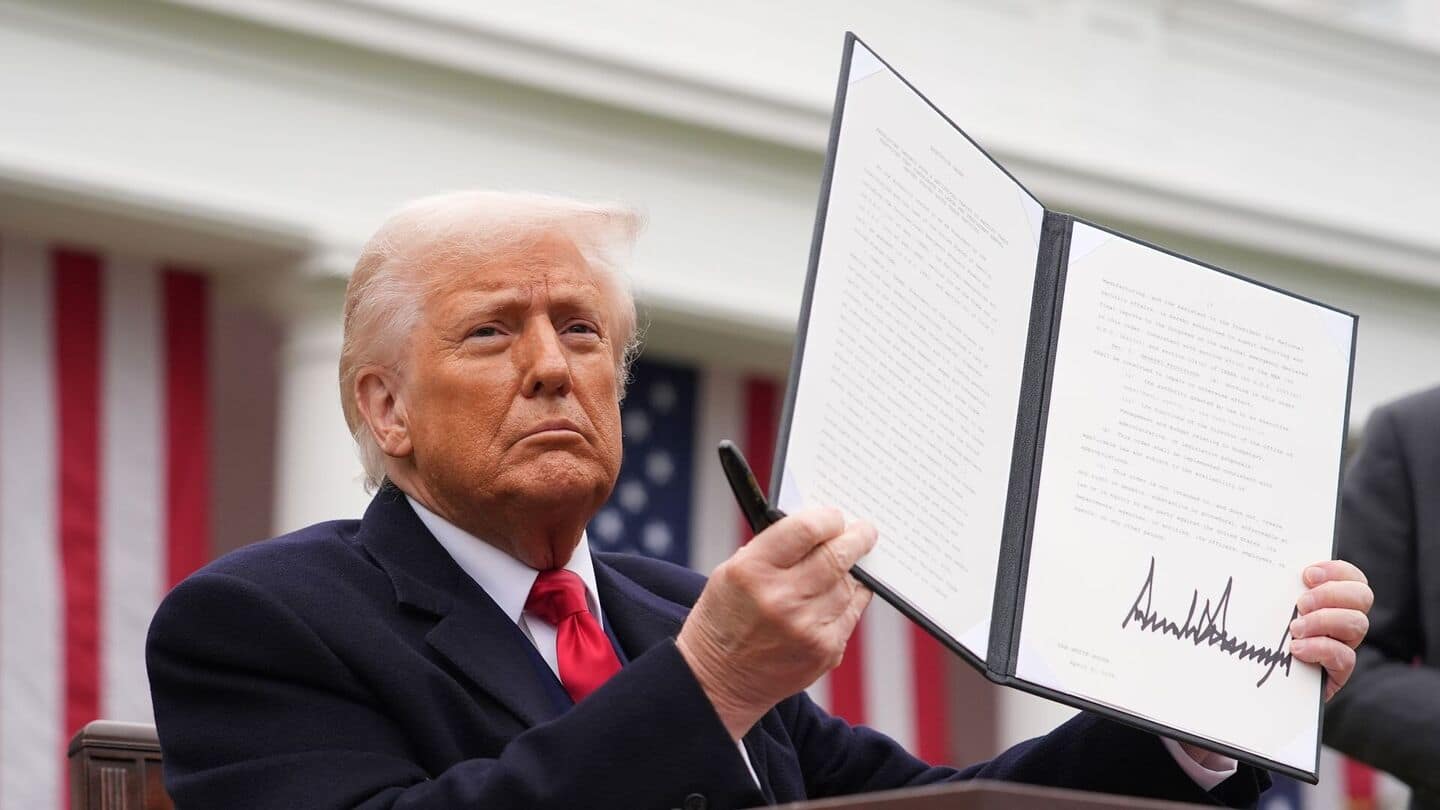
Trump announces 100% tariffs on pharmaceutical drugs starting October 1
What's the story
US President Donald Trump has announced a new round of tariffs, including a 100% duty on branded or patented pharmaceutical products. The tariff will be effective from October 1, unless companies set up manufacturing plants in the United States. Apart from this, Trump also announced a 50% duty on kitchen cabinets and bathroom vanities, 30% on upholstered furniture, and 25% on heavy trucks. These tariffs will also come into effect from October 1.
Tariff impact
New tariffs could worsen inflation and slow economic growth
Trump's latest tariff move is part of his broader strategy to boost domestic manufacturing and cut the federal deficit. However, the new tariffs could worsen already high inflation and slow down economic growth. This is because businesses used to Trump's previous import taxes now face more uncertainty. "We have begun to see goods prices showing through into higher inflation," Federal Reserve Chair Jerome Powell said at a recent news conference.
Tariff details
Pharmaceutical tariffs won't apply to companies building US factories
The pharmaceutical tariffs won't apply to companies building manufacturing plants in the US, Trump said on Truth Social. However, it remains unclear how these tariffs would affect companies already having factories in America. In 2024, the US imported nearly $233 billion worth of drugs and medicines, Census Bureau data shows. The prospect of doubling prices for some medicines could shock the American public as healthcare costs rise.
Tariff justification
Trump says foreign manufacturers are flooding the US market
Trump justified the new tariffs on furniture and cabinetry by saying foreign manufacturers are flooding the US with their products. He said these duties are necessary "for National Security and other reasons." The new tariffs could further hike costs for homebuilders amid a housing shortage and high mortgage rates.
Indian impact
India seeks to diversify drug exports amid tariff pains
India is one of the biggest suppliers of medicines to the US. In 2024, India's pharmaceutical exports stood at $12.72 billion, making it the country's largest industrial export sector. However, amid tariff pains, India is reportedly looking to increase drug exports to semi-regulated markets in Africa and Latin America as well as Southeast Asia. This move is aimed at reducing dependence on the US market where tariff concerns loom large.
Concerns
Impact on Indian pharma companies
India faces a major setback from the 100% tariff on branded pharmaceutical products not manufactured in the US. The move could sharply raise costs for Indian drugmakers, especially those selling higher-end branded medicines and specialty drugs, a segment that has been steadily expanding. The tariff risks eroding their competitiveness overnight, and unless Indian companies establish or expand manufacturing plants in the US, they could lose significant market share to rivals who have a presence in the US.